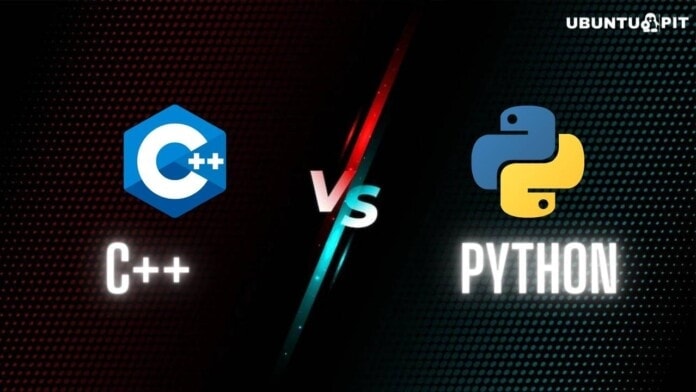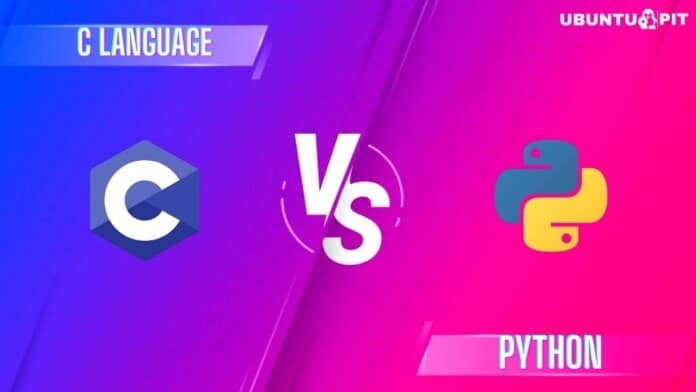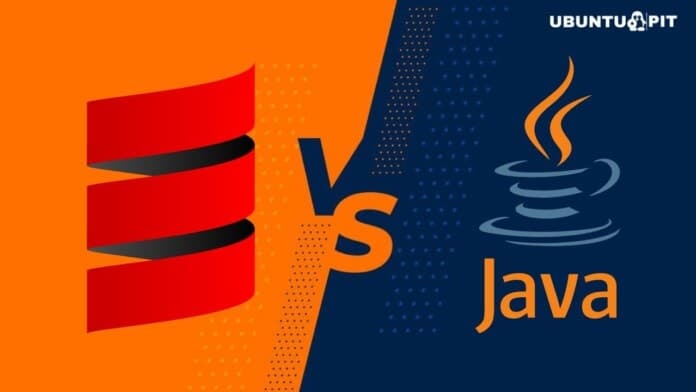While C++ is the pioneer of object-oriented languages, Python is one of the newer languages that has hit peak popularity due to its easy-to-understand syntax, among a ton of other benefits. That said, it is valid to draw a comparison between C++ vs. Python as they are both high-level programming languages with similar uses.
Although one can use both languages to develop real-time dynamic applications, C++ and Python can be seen to go on different paths as most prefer C++ for general applications, and Python users often get a kick out of developing web applications. If this piques your interest or if you are trying to choose which to learn, stick on because that’s why we are here today!
C++ vs. Python: Their Backstory
However, we must first get to know the two languages better before coming to a valid conclusion about the right tool for you between C++ vs. Python. So let’s walk over their characteristics briskly below before we dive head-first into comparing the two. Keep reading!
What is C++?
 If we were to explain C++ to an absolute beginner, we would say that it is simply an extended version of the C language to make it more object-oriented, which even Bjarne Stroustrup (the Danish scientist who created C++ in 1979) would agree to.
If we were to explain C++ to an absolute beginner, we would say that it is simply an extended version of the C language to make it more object-oriented, which even Bjarne Stroustrup (the Danish scientist who created C++ in 1979) would agree to.
In short, C++ is “C with classes.” But in all honesty, there’s much more to the language that we can express. So let’s take a look at its key features as well as its advantages and drawbacks for getting a more vivid idea of the language, shall we?
Key Features of C++
- It is a compiled language that is highly portable yet efficient.
- The C++ syntax is typed and case-sensitive, just like the C language, but the object-oriented nature of C++ calls for several significant differences.
- C++ has a wide range of library functions and uses structured features such as pointers as well.
- Concepts such as classes, objects, abstraction, encapsulation, inheritance, and polymorphism were all first introduced through the C++ language.
Pros of C++
- C++ is one of the fastest object-oriented programming languages out there.
- It is a multi-paradigm language that can be used to develop both structured and object-oriented projects.
- The language supports low-level data manipulation and also lets users have complete control over memory management.
- It is a highly scalable language that is entirely compatible with C – so much so that a C++ IDE can smoothly run C programs without errors.
Cons of C++
- C++ has a steep learning curve and is not much beginner-friendly.
- The existence of friend functions and pointers can cause security issues, although aspects such as abstraction and encapsulation are more secure operations.
- Recent object-oriented languages have a garbage-collection feature that C++ lacks.
What is Python?
 Now that we discussed C++, it is Python’s turn to be explored. Python was launched in 1991 by Guido van Rossum at Centrum Wiskunde & Informatica (CWI), Netherlands, as an interpreted general-purpose programming language. It is a descendant of the ABC language, which SETL inspired.
Now that we discussed C++, it is Python’s turn to be explored. Python was launched in 1991 by Guido van Rossum at Centrum Wiskunde & Informatica (CWI), Netherlands, as an interpreted general-purpose programming language. It is a descendant of the ABC language, which SETL inspired.
That said, it has more advanced features if we compare C++ vs Python. So, let’s take a look at the most significant ones as well as the pros and cons of the Python programming language below to understand it better.
Key Features of Python
- It is a typed language with a syntax that can be easily understood.
- Python is highly extensible – there’s a Python library or module for developing almost any kind of project you might have in mind.
- The language favors prototyping and testing like no other due to its versatile libraries and its nature to simplify complex programs.
- Python’s standard libraries include XML parsers, excel interfaces, and much more, making it highly compatible with GUIs.
Pros of Python
- It is extensible and embeddable in other languages, making it highly suitable for building real-time projects that may require more than one language to work properly.
- The language is highly readable, making it beginner-friendly so that one can use it often in other fields such as data science and machine learning.
- Python’s interpreted nature makes debugging better and more efficient as it reads the program line by line.
- It has garbage collection features that help in projects with limited memory resources.
Cons of Python
- While the Python syntax is easier to learn, its duck-typing nature may cause runtime errors frequently.
- It doesn’t come with much security for client servers, which makes it less suitable for mobile applications.
- Python is versatile, but it is slow due to its interpreted nature.
C++ vs. Python: What Makes Us Compare Them?
 Now that we have gone over the introductory phase of the two languages let’s get to the part where we tell what makes us compare C++ vs. Python in the first place if you guessed “similarities,” well done! You guessed it correctly. So let’s take a look at how similar Python and C++ are before we get to actually comparing them!
Now that we have gone over the introductory phase of the two languages let’s get to the part where we tell what makes us compare C++ vs. Python in the first place if you guessed “similarities,” well done! You guessed it correctly. So let’s take a look at how similar Python and C++ are before we get to actually comparing them!
1. Multi-paradigm
Both Python and C++ are multi-paradigms. The term multi-paradigm refers to having functions of both structured and object-oriented languages. This means that you can create almost any project imaginable with these two languages with the help of the right tools and libraries.
2. Scalability
Scalability is a crucial part of any application. That said, if your programming languages are scalable, they can adapt to drastic changes in load without losing their performance. Both C++ and Python are scalable languages. So they can work on complex projects smoothly as usual.
3. Character Set and Standard Functions
The in-built functions and character sets of a programming language determine a lot about how the language works. In that regard, most programming languages use the ASCII character set, and so do these two. They also share some standard functions written in C language.
4. Extensibility and Embeddedness
As we mentioned before, Python is a highly extensible and embeddable language. One can use it with any other language to create unique applications and features without needing to translate between languages for the program to work. C++ also supports this feature really well.
C++ vs. Python: The 5 Key Differences
Finally, we have reached the main attraction of our article today, where we get to compare the nitty-gritty aspects of C++ vs. Python. So, without further ado, let’s dive in!
1. Learning Curve
First, we must talk about the learning curve steeper for C++ than for Python. In fact, Python’s beginner-friendly nature makes it popular, whereas most people get stuck with the complex C++ verbose and hence hesitate to choose to learn it. However, Python also has many tools that add to its learning curve, but those are for advanced learners.
2. Syntax
Since we already established that Python is an easier language to learn, you might have already guessed that its syntax is easier and more intuitive as well. For instance, while C++ has a lot of similarities to C and uses curly braces and data-type declaration, you can declare variables without data types and use whitespace indention in Python.
3. Scalability, Speed, and Performance
Although both Python and C++ are scalable languages, Python is an interpreted language, whereas C++ is a compiled language. So, C++ is faster as it reads the whole program before showing an output, while Python shows the output for individual lines and causes runtime errors. So, even though both are equally scalable, C++ is faster and performs better than Python.
4. Uses
 The two will have similar uses as they both are object-focused multi-paradigm languages. However, if we compare C++ vs Python, C++ is mostly used for developing embedded systems and complex softwares, whereas one can use Python for developing web applications and in data science, IOT, or machine learning projects.
The two will have similar uses as they both are object-focused multi-paradigm languages. However, if we compare C++ vs Python, C++ is mostly used for developing embedded systems and complex softwares, whereas one can use Python for developing web applications and in data science, IOT, or machine learning projects.
5. Memory Management and Security
As we mentioned before, C++ does not have garbage-collecting features, unlike Python. This means that memory management in C++ is worse since you have to do it manually compared to that in Python. That said, they are on similar levels when it comes to scurry as C++ uses pointers and Python lacks security on client servers, both of which can cause memory leakage.
C++ vs. Python: The Right Fit For You
If you have read this far, it is normal to wonder which of the two suits you best. Unfortunately, we cannot give you a specific answer as the answer depends on your specific needs.
However, we can suggest to you which to choose based on some general scenarios, as stated below. So keep reading!
- If you just learned C, C++ is a great start, as many of the syntaxes are similar, and you get to understand the stark differences between structured and object-oriented programming.
- Python should be your choice if you are a complete beginner in programming, as it is easy to grasp, and tons of resources are available online.
- If you aim to build hardware-level systems, C++ is the better choice due to its fast performance.
- On the other hand, if you are a data science enthusiast, Python would be great as it is the most used language for data analysts.
Hopefully, you get the gist of it by now – so we suggest you understand why you are trying to learn the language before actually choosing it. Also, there’s no harm if you decide to try them both out. After all, the more, the merrier, right?
C++ vs. Python: FAQs
 So that was all about our C++ vs. Python comparison today. However, let’s take a look at some frequently asked questions regarding the two languages before drawing an end to our discussion today.
So that was all about our C++ vs. Python comparison today. However, let’s take a look at some frequently asked questions regarding the two languages before drawing an end to our discussion today.
Q: Is C++ better than Python?
A: This depends on what you are looking for. Python is perfect for you if you want some simple to learn and versatile to work with. At the same time, C++ is better in terms of the performance and development of complex systems.
Q: Is Python harder than C++?
A: No, C++ is harder than Python as it has a harder syntax, and you have to do many things manually in C++ that are automated in Python.
Q: Should I learn Python before C++?
A: Honestly, the learning order doesn’t matter much when it comes to programming languages. However, if you just learned C, C++ is the one you should start with. Otherwise, Python is fine.
Q: Which is better, C++ or Python, for jobs?
A: Currently, more Python-related jobs are on the market compared to C++. However, the average salary of a C++-related job is much higher than that of Python due to its complexity.
Insights
With that said, it is time to end our discussion of C++ vs Python today. If you have stuck with us till now, we must tell you that we highly appreciate your presence, and we hope that we have helped you choose the right one for you.
If not, we suggest you take a look at some learning materials for both and research more before jumping right in! That was all for now. Do leave feedback if you have any queries or criticism. Thanks for reading! Goodbye.


